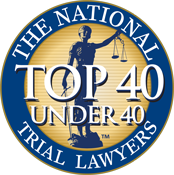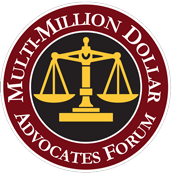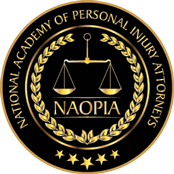Premises liability claims may not be something you think about daily, but they can have significant consequences if you're not careful. As a property owner or occupier, it's essential to understand the risks of premises liability and take steps to protect yourself.
For one thing, premises liability claims can result in substantial financial damages. If someone is injured on your property due to negligence or unsafe conditions, you could be held responsible for medical bills, lost wages, and other costs associated with their injuries. These expenses can add up quickly and significantly impact your finances.
Furthermore, failing to address safety hazards on your property could lead to legal trouble down the line. Property owners may sometimes face criminal charges if negligence leads to serious injury or death.
Taking care of your property and ensuring it's safe for visitors is the right thing to do. By proactively preventing accidents and promptly addressing any issues when they arise, you help keep everyone who visits your property safe and secure.
There are many compelling reasons why anyone who owns or occupies a piece of property should care about premises liability claims.
Who Can Be Held Liable in a Premises Liability Lawsuit?
In a premises liability lawsuit, the question of who can be held liable is crucial. Liability in these cases, typically falls on the property owner or occupier, but there are exceptions.
For example, if an injury occurs on a rental property, the landlord and tenant could be held responsible. Similarly, if an injury occurs at a business location that leases space within a larger building, the business owner and building owner may face liability.
In some cases, third-party contractors hired by property owners to perform work may also be found liable for injuries resulting from their actions or negligence.
Determining liability in a premises liability case requires careful examination of all factors. It's important to consult with experienced legal professionals who can help you understand your rights and options moving forward.
What Are Common Types of Premises Liability Cases?
Premises liability cases can arise in various situations, and it's important to understand the common types of cases that fall under this category. Slip and falls are perhaps the most well-known type of premises liability case, where an individual is injured due to hazardous conditions such as wet floors or uneven surfaces.
Another common type of premises liability case involves inadequate security measures leading to assault or other criminal acts on the property. This may include insufficient lighting, lack of security cameras, or failure to screen visitors properly.
Dog bites are also a frequent occurrence in premises liability cases. Property owners are responsible for keeping their pets restrained and preventing them from causing harm to others who visit the property.
Inadequate property maintenance can also lead to injuries such as falling objects or collapsing structures. Property owners must ensure their buildings are safe for visitors by promptly addressing structural issues.
Understanding these common types of premises liability cases can help individuals recognize when they may have a valid claim for compensation after being injured on someone else's property.
What is the Duty of Care in a Premises Liability Case?
In a premises liability case, the duty of care refers to the responsibility of property owners or occupiers to ensure their premises are safe for visitors. This means taking reasonable steps to prevent any foreseeable harm from occurring on their property.
The duty of care extends to all types of visitors - whether they are guests, customers, or even trespassers. Property owners have a legal obligation to warn visitors about any potential hazards on their property and take corrective action if necessary.
For a plaintiff to succeed in a premises liability case, they must prove that the defendant breached this duty of care. This requires demonstrating that the defendant failed to take reasonable precautions or did not adequately warn visitors about potential dangers on their property.
Examples of breaches may include failing to repair broken stairs or handrails, neglecting hazardous spills or debris on floors, or providing proper lighting in dark areas.
Establishing a breach is essential in proving negligence claims against parties responsible for maintaining properties open and accessible to others.
What Are the Responsibilities of Property Owners or Occupiers?
When it comes to premises liability claims, property owners or occupiers have a duty of care towards visitors. This means that they are responsible for ensuring that their property is reasonably safe and free from hazards.
Property owners or occupiers must prevent potential accidents by regularly inspecting their property, repairing any hazards promptly, and warning visitors about potential dangers.
For example, if there is a slippery floor due to spilled liquid in a grocery store, the owner must promptly clean it up and place warning signs around the area until it is dry. If they fail to do so and someone slips and falls. As a result, they may be held liable for any resulting injuries.
Property owners or occupiers must also provide adequate security measures, such as proper lighting in parking lots or installing security cameras in areas known for criminal activity.
The responsibilities of property owners or occupiers extend beyond just providing safe premises; they should also ensure their visitors' safety while on their property.
How Do I Determine if I Have a Valid Premises Liability Claim?
If you have been injured on someone else's property, you may be wondering if you have a valid premises liability claim. The first thing to consider is whether or not the property owner or occupier owed you a duty of care.
Property owners and occupiers are generally responsible for ensuring their premises are safe for visitors. If they fail to do so, and someone is injured. As a result, they may be liable for damages.
To determine if you have a valid premises liability claim, it's important to gather evidence that proves the property owner or occupier was negligent in maintaining their premises. This might include photos of any hazards that contributed to your injury, witness statements from people who saw the accident, and medical records detailing your injuries.
Another key factor in determining if you have a valid claim is whether or not you were lawfully on the property at the time of your injury. If you were trespassing at the time of your accident, it may be more difficult to prove that the property owner or occupier was responsible for your injuries.
Ultimately, consulting with an experienced personal injury attorney can help clarify whether or not you have a valid premises liability claim. They can review all the facts surrounding your case and advise you on how best to seek compensation for your injuries.
What Evidence Should I Gather to Support My Premises Liability Case?
If you've been injured on someone else's property and are considering filing a premises liability claim, gathering evidence to support your case is important. The more evidence you have, the stronger your case will be.
Documentation is one of the most important types of evidence in a premises liability case. This includes any medical records related to your injury, photographs or videos of the accident scene, and any hazardous conditions that contributed to your injury.
Witness testimony can also be crucial in establishing liability. If there were witnesses present at the time of the accident who saw what happened, their statements can help establish negligence on the part of the property owner or occupier.
In addition to physical evidence and witness testimony, obtaining expert opinions from professionals such as engineers or safety experts who can testify about building code violations or other factors that contributed to your injury may be helpful.
Gathering thorough and comprehensive evidence is key when pursuing a premises liability claim. By working with an experienced attorney who understands what types of evidence are needed for this type of case, you can increase your chances for success in court.
What Damages Can I Seek in a Premises Liability Lawsuit?
If you were injured on someone else's property due to their negligence, you may be able to seek damages in a premises liability lawsuit. The types of damages that can be sought vary depending on the circumstances of your case.
One type of damage that can be sought is medical expenses. This includes any costs related to treatment for your injuries, such as hospital bills, doctor visits, medication, and rehabilitation therapy.
Another type of damage is lost wages. If your injury forced you to miss work or caused a decrease in your earning capacity, you may be able to recover compensation for those losses.
In addition, pain and suffering damages may also be available. These are non-economic damages meant to compensate for physical pain and emotional distress caused by the incident.
If the defendant acted with malicious intent or gross negligence, punitive damages may also be awarded as punishment for their actions.
It's important to note that every case is unique, and the specific types and amount of damages will depend on the facts surrounding each case.
What is the Role of Insurance Companies in Premises Liability Cases?
Insurance companies play a significant role in premises liability cases. In most cases, property owners carry insurance policies that cover accidents and injuries on their premises. When an accident occurs, the injured party typically files a claim with the property owner's insurance company.
The insurance company's responsibility is to investigate the accident and determine whether or not they will pay out compensation for damages incurred by the victim. Insurance adjusters may attempt to minimize compensation or deny claims altogether if they believe there is insufficient evidence of negligence on behalf of the property owner.
It's important to note that insurance companies are primarily concerned with protecting their financial interests, which means they may try to settle quickly before all damages can be assessed fully. This often results in lowball settlement offers that do not adequately compensate victims for their losses.
Therefore, it's crucial to have experienced personal injury attorneys who understand how insurance companies operate and can negotiate fair settlements for clients injured due to someone else's negligence. Their lawyers will ensure victims receive full compensation for medical bills, lost wages, pain and suffering, future treatments required, and other related expenses.
Can I File a Lawsuit if I Was Partially at Fault for My Injuries?
If you were partially at fault for your injuries, filing a lawsuit under premises liability laws may still be possible. However, the outcome of your case may depend on the specific circumstances surrounding your injury.
In some states, if you are found to be even partially responsible for your injuries, this could affect the compensation you can receive from a lawsuit. For example, in Florida, if you are found to be 50% or more at fault for your injuries, you cannot recover damages from the other party.
However, in some instances where both parties share responsibility for an accident or injury occurring on someone's property - known as comparative negligence - settlements can still happen between all involved parties that might not reduce damage costs completely but rather cover partial costs due to shared responsibility.
It is important to speak with an experienced premises liability attorney who can evaluate your case and determine whether filing a lawsuit is possible and what outcomes should be expected.
What Factors Are Considered When Determining Negligence in a Premises Liability Case?
When it comes to premises liability cases, determining negligence is a crucial factor. Negligence refers to the failure of an individual or entity to exercise reasonable care for their safety and that of others.
To prove negligence, several factors are considered in a premises liability case. One important factor is whether the property owner or occupier knew or should have known about the dangerous condition of their property but failed to take action.
Another factor is whether the injured party used the property as intended at the time of injury. If they were trespassing or engaging in reckless behavior, it may impact their ability to recover damages.
The severity and extent of injuries sustained by the plaintiff also play a role in determining negligence. If an injury resulted in significant medical expenses, lost wages, and long-term impairment, it could strengthen their compensation claim.
Comparative fault can be considered when determining negligence. This means that if both parties share some responsibility for causing an accident, then damages may be reduced based on each party's degree of fault.
Proving negligence requires careful examination of all relevant evidence related to how reasonable care was exercised by both parties involved in a premises liability case.
Will My Case Go to Trial, or is a Settlement More Likely?
When it comes to premises liability cases, several factors can determine whether your case will go to trial or be settled out of court. In many instances, settlements are more likely than trials because they allow both parties to resolve without going through the time and expense of a full-blown court case.
Settlements also allow you to receive compensation for your injuries sooner rather than later. Going to trial can be a long and drawn-out process, meaning you may have to wait months or even years before receiving financial compensation.
However, it is important to note that every case is unique, and some may require litigation for justice to be served. If the other party refuses to negotiate in good faith or denies responsibility for their actions, your case may be necessary before a judge and jury.
Ultimately, whether your case goes to trial will depend on the specific circumstances surrounding your injury and the willingness of both parties to come together and agree upon an equitable settlement.
How Long Does it Typically Take to Resolve a Premises Liability Lawsuit?
The length of time it takes to resolve a premises liability lawsuit can vary greatly depending on the circumstances of the case. Some cases may be settled quickly, while others could take months or years to resolve.
One factor impacting the timeline for resolving a premises liability case is the complexity of the legal issues involved. If multiple parties are involved in the case or complex legal questions are at play, attorneys may need to gather evidence and build their arguments longer.
Another factor to consider is whether or not settlement negotiations are successful. If both parties can agree outside of court, this can significantly speed up the process and save both sides time and money.
Additionally, if a trial is necessary, this can add additional time to resolving a premises liability case. Trials often involve lengthy pre-trial proceedings such as discovery and depositions before they enter court.
Ultimately, there is no set time frame for how long it will take to resolve your premises liability claim. The best way to estimate how long your specific case might take is by consulting with an experienced personal injury attorney who has handled similar cases in your area.
Contact Frankl Kominsky Premises Liability Lawyers Serving Palm City
If you or a loved one has been injured due to the negligence of a property owner or occupier, it's important to seek legal counsel from experienced premises liability attorneys.
At Frankl Kominsky, our team is dedicated to helping victims in Palm City and surrounding areas get the compensation they deserve. We understand how difficult it can be to deal with injuries and other damages resulting from an accident on someone else's property.
Our knowledgeable lawyers have years of experience handling all types of premises liability claims. We are committed to providing compassionate yet aggressive representation for our clients throughout every step of their case. Contact us at (561) 800-8000 for a free consultation today. Let us help you hold negligent parties accountable and fight for your rights as an injury victim.

Steven L. Frankl
Steven L. Frankl represents clients in cases of catastrophic injury, wrongful death, motor vehicle accidents, trucking accidents, medical malpractice, and product liability, as well as slip/trip fall accidents and nursing home neglect. Mr. Frankl’s practice is built on the pursuit of justice and fair compensation for his clients.





